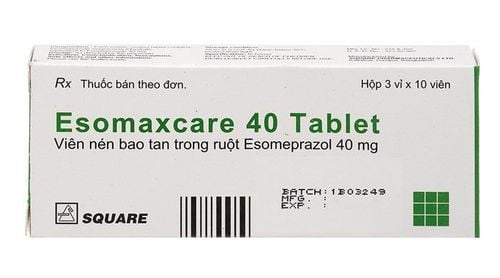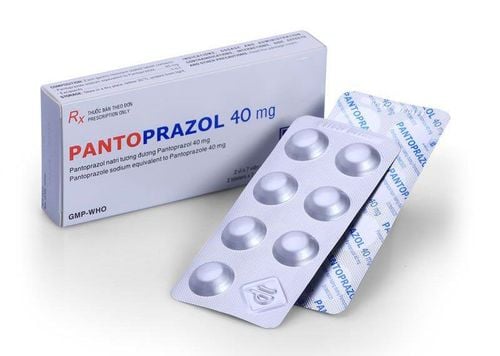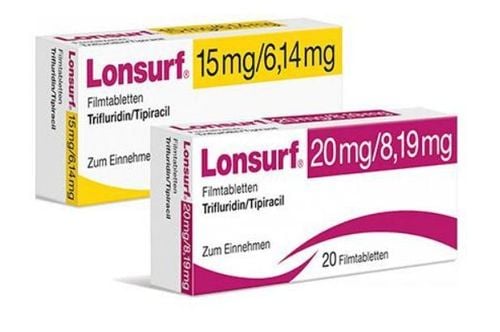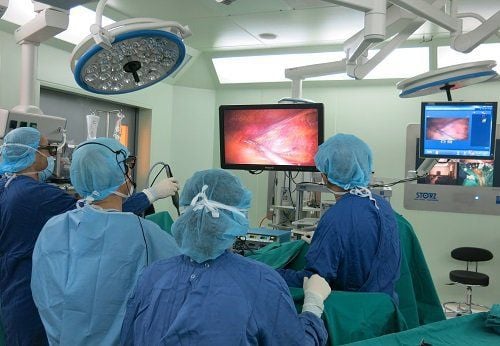This is an automatically translated article.
The article was professionally consulted with Master, Doctor Vu Van Quan - Gastroenterologist - Department of General Surgery & Anesthesia - Vinmec Hai Phong International General Hospital.Peptic ulcer, also known as peptic ulcer, is a fairly common disease, but if not diagnosed in time, it will cause serious complications. If the use of prescription drugs does not help, the patient will have to conduct more advanced treatment operations.
1. Signs and symptoms of peptic ulcer disease
Peptic ulcers can present with the range of symptoms outlined below. There are special cases where there are no symptoms before complications occur.
Ulcers caused by NSAIDs are often asymptomatic, and perforation or bleeding may be the first manifestation.

1.1 Duodenal ulcer in adults Epigastric pain 1-3 hours after meals Pain relief after eating Nocturnal symptoms Epigastric pain in 60-90% of cases Nonspecific dyspeptic manifestations ( eg belching, flatulence, abdominal distention, food intolerance) in 40-70% of cases. Symptoms appear intermittently and may appear seasonally such as spring or fall 1.2 Stomach ulcers in adults Complex symptoms similar to duodenal ulcers Weight loss

1.3 Complications of peptic ulcer Hemorrhage: Dizziness, fainting, vomiting blood, black stools. Perforation: Sudden and severe epigastric pain, bulging right shoulder, peritoneal sign, free air in the abdomen. Congestion: Fast satiety, nausea, vomiting, anorexia and weight loss
2. Gastrectomy to treat chronic stomach ulcers?
Surgical treatment of peptic ulcer disease includes absolute indications for surgery and relative indications for surgery depending on the severity of the disease. Gastric bypass surgery offers both curative benefits and some potential risks. Therefore, the doctor must always carefully weigh the pros and cons to make the final decision. In general, surgery should be indicated if:
Peptic ulcer disease taking drugs is no longer effective (duration of medical treatment has been long, at least 2 years or more)
● Peptic ulcer disease colon complications: perforation, pyloric stenosis, gastrointestinal bleeding failure of medical treatment or recurrent gastrointestinal bleeding, cancer,...
In addition to the above-mentioned manifestations, the physician also needs to rely on characteristics related to the patient to indicate surgery, such as:
● Age: Limit surgery to patients who are too young or too old.
● Health status: carefully calculated with cases of exhaustion, chronic diseases such as cirrhosis, pulmonary tuberculosis, diabetes, chronic kidney disease, bronchial asthma, ...
● Expectations of patient: based on occupation and family background;
However, it is important to understand that the points raised in this section are only grounds for consideration and calculation in the decision-making process. For each specific case, the indication for surgery is always to ensure the best choice for the patient, not necessarily applying any rigid criteria.
3. How is gastrectomy to treat peptic ulcer disease performed?
In laparoscopic or classical gastrectomy, the mass that needs to be removed is usually 2/3 of the stomach to remove the lesion and remove the acid-producing area of the stomach.
After removing part of the stomach, the doctor will perform a healing suture of the digestive tract. Based on the location of ulcer resection and specific gastroduodenal condition, there are several suture methods as follows:
● Gastric to duodenal anastomosis
Gastric to jejunal anastomosis

Laparoscopic gastrectomy is a difficult method, requiring very high expertise. Not only highly specialized knowledge but also must be proficient in the use of modern medical equipment to perform.
This technique is performed by Dr. Vu Van Quan, a doctor with more than 10 years of experience in digestive surgery, well-trained in laparoscopic surgery techniques. Therefore, patients are completely assured when coming to Vinmec to treat chronic peptic ulcers and complications.
Patients who have surgery at the Department of Surgery, Vinmec Hai Phong Hospital enjoy outstanding benefits including:
Short hospital stay, minimizing the cost of stay, reducing the risk of hospital infections. With cases of lithotripsy, inguinal hernia, customers can always go to work after 1 day of discharge from the hospital. Limit the use of antibiotics, reduce the risk of side effects, save costs, patients do not have to worry, fear when administering antibiotics and follow up after taking the drug. Recovery rate reached 90%, re-hospitalization 0%, postoperative infection 0%. The Early Post-Surgery Care Program provides comprehensive care to patients before, during and after surgery, helping to reduce hospital stay, improve treatment quality and reduce costs; reduce the rate of complications. ERAS has been shown to shorten the average length of stay from 8-10 days to 3-4 days. Insurance: Vinmec signed with many large private insurance partners. When customers are hospitalized, they are guaranteed and compensated at the hospital. Save a lot of customer's time and effort. Other advantages : Modern equipment; Service quality according to international standards; Highly qualified doctor; Patients do not need relatives to take care of them because they are cared for by a dedicated and attentive nursing doctor...
Please dial HOTLINE for more information or register for an appointment HERE. Download MyVinmec app to make appointments faster and to manage your bookings easily.














